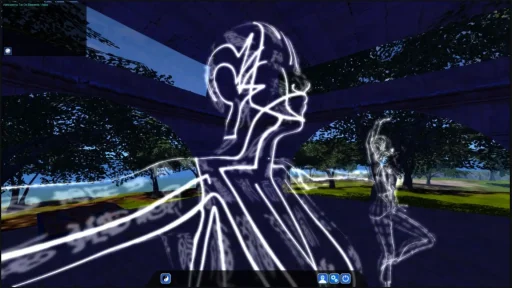
Before we explore how Tai Chi can ease pain, let’s first understand what Tai Chi is. Tai Chi, also known as Tai Chi Chuan or Taijiquan, is a Chinese practice that combines slow, graceful movements, deep breathing, and meditation. It’s been around for over 2,000 years and aims to improve both physical and mental well-being.
The Role of Qi in Tai Chi
In Tai Chi, there’s a fundamental concept called Qi (pronounced “chee”). In Chinese medicine, Qi is thought to be the vital energy that flows through the body, keeping us healthy. When there are blockages or imbalances in the flow of Qi, it can lead to physical and mental health issues, including pain.
Tai Chi and the Flow of Qi
According to Chinese medicine, pain can occur when Qi is blocked. Tai Chi, with its slow and deliberate movements, is designed to remove these blockages and restore the natural flow of Qi. Here’s how Tai Chi does that:
- Gentle Movements: Tai Chi’s smooth movements help energy flow through the body, releasing tension and improving the flow of vital energy.
- Mind-Body Connection: Tai Chi increases awareness of your body, allowing you to pinpoint areas of tension and discomfort. This awareness lets you direct your Qi to those areas, promoting healing.
- Deep Breathing: Tai Chi includes deep, diaphragmatic breathing, which oxygenates the body and supports the movement of Qi.
- Meditation and Relaxation: The meditative aspect of Tai Chi reduces stress and anxiety, which can worsen pain.
Scientific Evidence: Tai Chi’s Effectiveness in Pain Relief
Tai Chi’s ability to relieve pain isn’t just anecdotal; it’s backed by science. Here are ten ways Tai Chi can help with pain:
- Arthritis Pain Relief
- Improved Symptoms of Multiple Sclerosis (MS)
- Better Management of Osteoporosis
- Restoration of Spinal Health
- Alleviation of Parkinson’s Disease Symptoms
- Relief from Post-Traumatic Pain
- Improved Sleep
- Enhanced Memory Function
- Reduced Anxiety and Stress
- Overall Better Well-Being
Tai Chi vs. Medication: A Safer Option
In a world grappling with opioid addiction, Tai Chi offers a safer approach to pain management. Opioids can be effective for pain but come with side effects and a high risk of addiction. Tai Chi, however, addresses the root causes of pain without these risks. It empowers individuals to manage pain naturally.
Addressing the Psychological Aspects of Pain
Pain isn’t just physical; it has psychological dimensions. Tai Chi recognizes this and can alleviate psychological symptoms often linked to chronic pain:
- Improved Sleep: Tai Chi’s relaxation can help with insomnia.
- Better Memory: Tai Chi boosts cognitive function.
- Stress and Anxiety Management: Tai Chi’s mindfulness reduces stress.
- Stress Reduction: By promoting relaxation, Tai Chi lowers overall stress levels.
- Coping with Pain: Tai Chi helps individuals cope with pain better.
In Conclusion
Tai Chi, rooted in traditional Chinese medicine and focused on Qi flow, offers a holistic approach to pain relief. Scientific research supports its effectiveness for both physical and psychological aspects of pain. Choosing Tai Chi over opioids and other medications empowers you to tap into your body’s natural healing abilities while avoiding addiction risks. If you’re ready to embark on a pain-free journey and improve your well-being, consider joining our Tai Chi classes. Explore the wisdom of Tai Chi and experience the power of Qi. Say goodbye to pain and hello to a healthier you.
Documentary and Interview
ITN ‘Tonight‘ visited us to capture footage of our Summer Course at Sennen Beach for their documentary, ‘Britain on Painkillers.’ This documentary explores alternative approaches to opioids. During their visit, they conducted interviews with some of our students who have found success in using Tai Chi as an alternative method for pain relief.
Notably, one of our students, who was prominently featured in the documentary, has taken a significant step forward. He has established his own Tai Chi club in his hometown, a development that garnered attention and led to a featured interview on BBC Radio Cornwall. You can watch this inspiring interview on YouTube.

